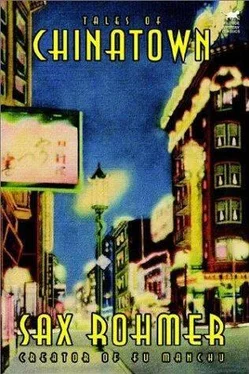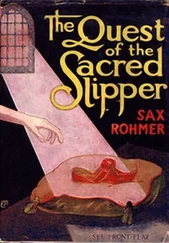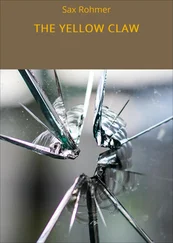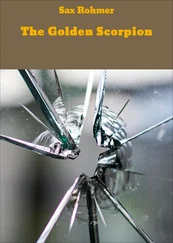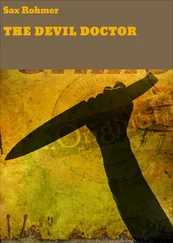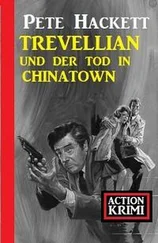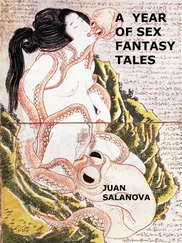Sax Rohmer - Tales of Chinatown
Здесь есть возможность читать онлайн «Sax Rohmer - Tales of Chinatown» весь текст электронной книги совершенно бесплатно (целиком полную версию без сокращений). В некоторых случаях можно слушать аудио, скачать через торрент в формате fb2 и присутствует краткое содержание. Жанр: Детектив, на английском языке. Описание произведения, (предисловие) а так же отзывы посетителей доступны на портале библиотеки ЛибКат.
- Название:Tales of Chinatown
- Автор:
- Жанр:
- Год:неизвестен
- ISBN:нет данных
- Рейтинг книги:4 / 5. Голосов: 1
-
Избранное:Добавить в избранное
- Отзывы:
-
Ваша оценка:
- 80
- 1
- 2
- 3
- 4
- 5
Tales of Chinatown: краткое содержание, описание и аннотация
Предлагаем к чтению аннотацию, описание, краткое содержание или предисловие (зависит от того, что написал сам автор книги «Tales of Chinatown»). Если вы не нашли необходимую информацию о книге — напишите в комментариях, мы постараемся отыскать её.
Tales of Chinatown — читать онлайн бесплатно полную книгу (весь текст) целиком
Ниже представлен текст книги, разбитый по страницам. Система сохранения места последней прочитанной страницы, позволяет с удобством читать онлайн бесплатно книгу «Tales of Chinatown», без необходимости каждый раз заново искать на чём Вы остановились. Поставьте закладку, и сможете в любой момент перейти на страницу, на которой закончили чтение.
Интервал:
Закладка:
Men detested Tcheriapin, yet when he chose he could win over his bitterest enemies. Women followed him as children followed the Pied Piper; he courted none, but was courted by all. He would glance aside with those black, slanting eyes, shrug in his insolent fashion, and turn away. And they would follow. God knows how many of them followed-whether through the dens of Limehouse or the more fashionable salons of vice in the West End-they followed-perhaps down to Hell. So much for Tcheriapin.
At the time when the episode occurred to which I have referred, Dr. Kreener occupied a house in Regent's Park, to which, when his duties at the munition works allowed, he would sometimes retire at week-ends. He was a man of complex personality. I think no one ever knew him thoroughly; indeed, I doubt if he knew himself.
He was hail-fellow-well-met with the painters, sculptors, poets, and social reformers who have made of Soho a new Mecca. No movement in art was so modern that Dr. Kreener was not conversant with it; no development in Bolshevism so violent or so secret that Dr. Kreener could not speak of it complacently and with inside knowledge.
These were his Bohemian friends, these dreamers and schemers. Of this side of his life his scientific colleagues knew little or nothing, but in his hours of leisure at Regent's Park it was with these dreamers that he loved to surround himself rather than with his brethren of the laboratory. I think if Dr. Kreener had not been a great chemist he would have been a great painter, or perhaps a politician, or even a poet. Triumph was his birthright, and the fruits for which lesser men reached out in vain fell ripe into his hands.
The favourite meeting-place for these oddly assorted boon companions was the doctor's laboratory, which was divided from the house by a moderately large garden. Here on a Sunday evening one might meet the very "latest" composer, the sculptor bringing a new "message," or the man destined to supplant with the ballet the time-worn operatic tradition.
But while some of these would come and go, so that one could never count with certainty upon meeting them, there was one who never failed to be present when such an informal reception was held. Of him I must speak at greater length, for a reason which will shortly appear.
Andrews was the name by which he was known to the circles in which he moved. No one, from Sir John Tennier, the fashionable portrait painter, to Kruski, of the Russian ballet, disputed Andrews's right to be counted one of the elect. Yet it was known, nor did he trouble to hide the fact, that Andrews was employed at a large printing works in South London, designing advertisements. He was a great, red-bearded, unkempt Scotsman, and only once can I remember to have seen him strictly sober; but to hear him talk about painters and painting in his thick Caledonian accent was to look into the soul of an artist.
He was as sour as an unripe grape-fruit, cynical, embittered, a man savagely disappointed with life and the world; and tragedy was written all over him. If anyone knew the secret of his wasted life it was Dr. Kreener, and Dr. Kreener was a reliquary of so many secrets that this one was safe as if the grave had swallowed it.
One Sunday Tcheriapin joined the party. That he would gravitate there sooner or later was inevitable, for the laboratory in the garden was a Kaaba to which all such spirits made at least one pilgrimage. He had just set musical London on fire with his barbaric playing, and already those stories to which I have referred were creeping into circulation.
Although Dr. Kreener never expected anything of his guests beyond an interchange of ideas, it was a fact that the laboratory contained an almost unique collection of pencil and charcoal studies by famous artists, done upon the spot; of statuettes in wax, putty, soap and other extemporized materials, by the newest sculptors. While often enough from the drawing room which opened upon the other end of the garden had issued the strains of masterly piano-playing, and it was no uncommon thing for little groups to gather in the neighbouring road to listen, gratis, to the voice of some great vocalist.
From the first moment of their meeting an intense antagonism sprang up between Tcheriapin and Andrews. Neither troubled very much to veil it. In Tcheriapin it found expression in covert sneers and sidelong glances, while the big, lion-maned Scotsman snorted open contempt of the Eurasian violinist. However, what I was about to say was that Tcheriapin on the occasion of his first visit brought his violin.
It was there, amid these incongruous surroundings, that I first had my spirit tortured by the strains of "The Black Mass."
There were five of us present, including Tcheriapin, and not one of the four listeners was unaffected by the music. But the influence which it exercised upon Andrews was so extraordinary as almost to reach the phenomenal. He literally writhed in his chair, and finally interrupted the performance by staggering rather than walking out of the laboratory.
I remember that he upset a jar of acid in his stumbling exit. It flowed across the floor almost to the feet of Tcheriapin, and the way in which the little black-haired man skipped, squealing, out of the path of the corroding fluid was curiously like that of a startled rabbit. Order was restored in due course, but we could not induce Tcheriapin to play again, nor did Andrews return until the violinist had taken his departure. We found him in the dining room, a nearly empty whisky-bottle beside him.
"I had to gang awa'," he explained thickly; "he was temptin' me to murder him. I should ha' had to do it if I had stayed. Damn his hell-music."
Tcheriapin revisited Dr. Kreener on many occasions afterward, although for a long time he did not bring his violin again. The doctor had prevailed upon Andrews to tolerate the Eurasian's company, and I could not help noticing how Tcheriapin skilfully and deliberately goaded the Scotsman, seeming to take a fiendish delight in disagreeing with his pet theories and in discussing any topic which he had found to be distasteful to Andrews.
Chief among these was that sort of irreverent criticism of women in which male parties so often indulge. Bitter cynic though he was, women were sacred to Andrews. To speak disrespectfully of a woman in his presence was like uttering blasphemy in the study of a cardinal. Tcheriapin very quickly detected the Scotsman's weakness, and one night he launched out into a series of amorous adventures which set Andrews writhing as he had writhed under the torture of "The Black Mass."
On this occasion the party was only a small one, comprising myself, Dr. Kreener, Andrews and Tcheriapin. I could feel the storm brewing, but was powerless to check it. How presently it was to break in tragic violence I could not foresee. Fate had not meant that I should foresee it.
Allowing for the free play of an extravagant artistic mind, Tcheriapin's career on his own showing had been that of a callous blackguard. I began by being disgusted and ended by being fascinated, not by the man's scandalous adventures, but by the scarcely human psychology of the narrator.
From Warsaw to Budapesth, Shanghai to Paris, and Cairo to London he passed, leaving ruin behind him with a smile-airily flicking cigarette ash upon the floor to indicate the termination of each "episode."
Andrews watched him in a lowering way which I did not like at all. He had ceased to snort his scorn; indeed, for ten minutes or so he had uttered no word or sound; but there was something in the pose of his ungainly body which strangely suggested that of a great dog preparing to spring. Presently the violinist recalled what he termed a "charming idyll of Normandy."
"There is one poor fool in the world," he said, shrugging his slight shoulders, "who never knew how badly he should hate me. Ha! ha! of him I shall tell you. Do you remember, my friends, some few years ago, a picture that was published in Paris and London? Everybody bought it; everybody said: 'He is a made man, this fellow who can paint so fine.'"
Читать дальшеИнтервал:
Закладка:
Похожие книги на «Tales of Chinatown»
Представляем Вашему вниманию похожие книги на «Tales of Chinatown» списком для выбора. Мы отобрали схожую по названию и смыслу литературу в надежде предоставить читателям больше вариантов отыскать новые, интересные, ещё непрочитанные произведения.
Обсуждение, отзывы о книге «Tales of Chinatown» и просто собственные мнения читателей. Оставьте ваши комментарии, напишите, что Вы думаете о произведении, его смысле или главных героях. Укажите что конкретно понравилось, а что нет, и почему Вы так считаете.
